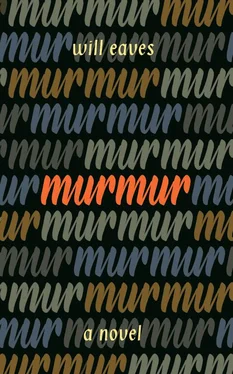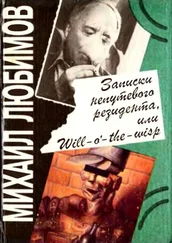“That’s unacceptable,” they kept saying, one after the other, in a tone of flat self-righteousness; or “That’s unacceptable behavior—we find that idea unacceptable in society today.” The flatness is a hall, a hangar, without an echo. The machines are objects that have lost their reason for being where they find themselves, like unsold items at an auction, or a complete dinner service in an operating theater.
It was plain that they regarded my assumption, my thinking, as the truly primitive kind of behavior. Plain, too—and this I experienced with a childlike horror—that they did not feel outrage as I felt outrage; that their pain was possibly real enough, but real in the way that a calculation is platonically real.
I was left to imagine what sort of extraordinary mental realm it was they inhabited in which pain and lies and deceptions were still said to offend, but offended as depressing inexactitudes rather than injustices, and I realized that I did not have to imagine very hard, because I had inhabited something very similar for most of my life, had treated a number of people as a series of unsatisfying propositions, and had understood therefore—with a shudder—the propensity in German Fascism to treat whole nations and races in like manner, and had fought against it accordingly.
And then, of course, I ended up being treated that way myself.
*
“And you encountered this ‘council of machines’ where, exactly?”
Dr. Stallbrook, on listening to my description of this waking vision, could not mask his alarm. I tried to allay it. I said that this was the sort of forward-thinking hallucination I had quite often—when I awoke early; or when, during the day and even while walking down the street, I fell into that peculiar trance the drug instills in me (though it is months now since I was last injected).
The visions are lurid images, scenes, that capture my inner eye, and it seems profitable to me to engage with them—in the spirit of analysis, one might say—rather than run in the opposite direction. I elaborated: “So, you see, I might pass the boating pond and the church and remember swimming at school with Christopher, or I might read the Provost’s letter from King’s and find myself wondering about characters from Cambridge, about Julius, and Arthur Eddington.”
“Eddington, the astronomer?”
“Exactly so. Or a car might backfire at me in the street, and I might hear a sharp order barked at me and begin to panic. The council of the machines is one example. I have had other insights that seemed more revelatory, complete dreams as it were, though inaccessible to me when my torpor lifts and I am back in the swing of things.”
Stallbrook’s motionlessness pushed me to continue.
“One recurring figment, which I find oddly consoling, involves a correspondence with June Wilson, whom I have not seen in many years. We are explaining matters to each other, and the conversation turns on my situation, which it soothes me to be able to discuss with her. She is keen to impress on me the urgency of her understanding and sympathy. She is entirely rational and humane—an ideal friend. It is such a hopeful condition, our communication, and I see it in the form of actual letters, there in front of me, on the table in Lyon’s, or wherever I happen to be. She is encouraging, saying, in so many ways, ‘There’s something behind this, and you will get to the bottom of it. There is a way through it, Alec. It is simply a question, as so often in life, of holding your nerve. That’s all you’ve to do—hold your nerve.’”
*
My brother John has wiry red-brown hair, unlike anyone else in the family, and eyes that are never still. He is tall and wide, and his hands are several sizes too large for trivial tasks. I am afraid of him, and grateful. His advice has been invaluable. But I am not sure that I respect him, and I think he knows it.
When I told him I’d been arrested, and what my crime was, he grabbed the desk—held it between finger and thumb. In his stripes and collar and tie he looked as henchmen do in thrillers when a knife catches them in the back.
Color and animation soon returned. He yelled at me, “Why on earth did you do it?” He meant: Why had I gone to the police about the burglary? He pointed out, rightly, that if I had not, they would never have fingerprinted the house, or found out about Cyril. I told John that it was a point of principle. I could not allow myself to be blackmailed by Cyril’s naval acquaintance. He yelled again that I was an ass. I was disgusting, unimaginable, revolting—but mostly I was an ass. A normal-sized shadow occupied the smoked-glass door of the office, then moved away, and John lowered his voice. How could someone so clever be so stupid ? He spat the word over his desk. I could taste the tobacco in the air-borne spittle, and for a moment it was as if he had kissed me.
I remained calm and, in the middle of our altercation, realized that being calm was the problem. To a passionate person like John, for whom a certain kind of permitted masculine emotion—being moved to tears by the coronation, say—is a marker of trust and sincerity, a trump card with which to confound the silly-ass rationalists, my self-control must have seemed utterly infuriating.
I remember The Times of 3 June last year with distaste. Phalanx of Princes. Ovation from Great Throng. Fervor in Oxford Street. Tribal Dancing and Processions (this last not in Oxford Street). Judges in Their Robes . Pages of it—so that one had to look hard for glimpses of an unhypnotized reality. There were few. The whole paper was given over to spectacle and genuflection, apart from the weather forecast, and two letters on page 9 PART TWO LETTERS AND DREAMS When the body dies, the ‘mechanism’ of the body holding the spirit is gone and the spirit finds a new body sooner or later, perhaps immediately.… The body provides something for the spirit to look after and use. —A. M. Turing, unpublished note
about Icelandic fishing and the price of Danish butter.
*
Determined as I am, like the spring, to mark a propitious change, I am pleased to say that the letter about Danish butter may have had an effect on governmental policy in respect of its Ag and Fish subsidies. The proposed rise in the price of butter to perhaps 5s a pound has not taken place in the half-year since Mr. Andreas Jacobsen put pen to paper; instead it has fallen to an average of 3s 9d a pound.
I am noticing things again. The strife in my veins is over, and the world is still out there. I watched a heron catch a fish today, poking forward, an old man rejuvenated by a win at Doncaster. My mother called on the telephone to thank me for her Christmas presents (a blanket and a pot of cyclamen). The Hutchings boy came in for a game of chess, and then his mathematics lesson, and together we considered a trefoil knot as a segmented reduction, and how the indefinite length of a symbolic description—one can always increase the number of segments—makes it hard to tell, merely from their description, if any two knots are the same.
His name is Raymond and he is at the local grammar. He whispers and stammers, but what he stammers is surprisingly informative. He considers problems as I considered them at his age, distractedly but seriously. He sits at a near-perfect ninety-degree angle to me, in the green library chair, and makes very few notes. He prefers neat diagrams and instant disclosure, the candor of the shy.
His parents want him to be a doctor, but he wants to mend pianos.
He was meant for Wargrave—paternal ambition—until, so Ray maintains, his mother put her foot down. Over my dead body, she said, will that boy go to one of those schools , and evidently she carried the day.
Читать дальше












